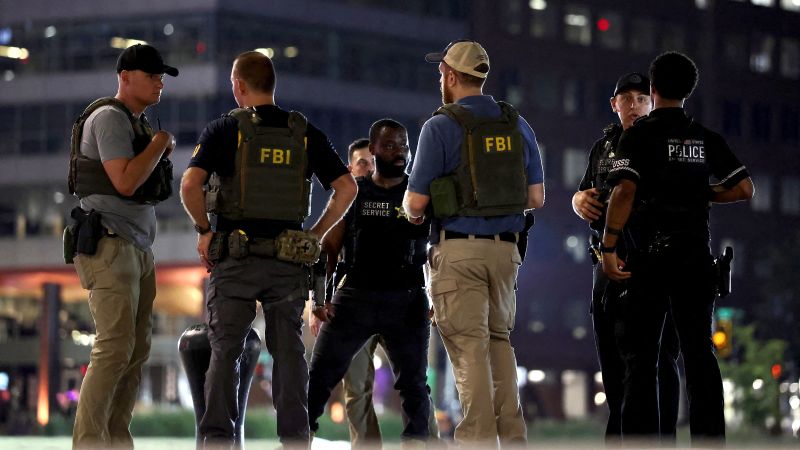The ongoing developments within the Federal Bureau of Investigation (FBI) reveal a significant departure from its traditional mission and training. In response to President Donald Trump’s declaration of a crime emergency in Washington, DC, FBI agents have been assigned to patrol duties alongside local police. This new role places agents in a setting for which they are not adequately trained, raising concerns about their effectiveness and the safety of both officers and the public.
For months, FBI agents, who typically specialize in intricate threat investigations, have found themselves juggling various non-traditional responsibilities. Their recent assignments have ranged from reviewing long-standing Jeffrey Epstein files for necessary redactions to assisting Immigration and Customs Enforcement (ICE) in locating and deporting undocumented immigrants. Disturbingly, this trend has led to agents patrolling the streets of the nation’s capital, a role that diverges sharply from their core competencies.
Many federal law enforcement officials have pointed out that while collaboration with local police forces is common for specific investigations, FBI agents are not prepared for community policing. As FBI Director Kash Patel emphasizes, his goal is to empower law enforcement to “let cops be cops.” However, the Bureau has also been recruiting agents from diverse backgrounds, and a notable proportion of new agents lack prior police experience. According to internal communications, over 44% of a 2024 class of new agents hold advanced degrees in fields unrelated to law enforcement.
The distinction between FBI agents and police officers is crucial. Former FBI Deputy Director Andrew McCabe underscored this by noting that the majority of agents do not come from policing backgrounds. Consequently, they lack the necessary training and experience typically associated with active street policing, which exposes them to higher risks and potentially dangerous situations. Most FBI work takes place indoors, behind desks, thus depriving agents of critical skills needed for de-escalating confrontations and identifying threats in a community setting.
Another key point of divergence is the FBI’s use-of-force policy, which sets a different benchmark for agents compared to local police departments. In Washington, DC, for instance, officers have access to non-lethal options like tasers and pepper spray before resorting to lethal force, tools not standard for FBI agents. Furthermore, agents receive minimal training for executing vehicle stops, a routine aspect of police work that poses substantial danger. When the FBI executes an arrest, operations are meticulously planned with more agents, making it distinct from general police encounters.
Recently reassigned agents have expressed frustration with their roles, highlighting a desire to return to their investigative work once Trump’s directive to bolster the Metropolitan Police Department (MPD) concludes. With this dual shift in focus, agents find themselves in a “wait-it-out” posture, indicating that patrolling roles detract from vital investigations that address national security threats.
The involvement of other federal entities like the Secret Service and the US Marshals Service—which have officers with substantial policing experience—further complicates the FBI’s current situation. Officers from these agencies are typically more involved in standard law enforcement tasks compared to their FBI counterparts. Concerns about the effectiveness of using agents untrained in crowd control were notably brought to light during the protests following the police killing of George Floyd in 2020. Agents deployed without significant crowd control expertise ended up in precarious situations during large demonstrations.
Throughout this challenging transition, the FBI has declined to comment on the efficacy and safety of these newfound duties, yet a few notable incidents have surfaced. On a recent Monday night in DC, FBI agents, now embedded with Metro Police, were involved in 10 out of 23 arrests, including illegal firearm possessions and driving under the influence. These collaborative efforts have been publicized by Patel, who touts successes in restoring order to the nation’s capital.
Meanwhile, past assignments have raised serious concerns about the FBI’s internal priorities, particularly with how agents have been diverted from critical investigations. For example, in 2025, many agents were reassigned to immigration-related duties, provoking apprehensions that national security inquiries would suffer as a result. A notable change in priorities was also prompted by the Epstein case, which absorbed significant FBI resources, detracting attention from crucial investigations into international threats.
In sum, the FBI’s current predicament reflects broader uncertainties linked to agency morale and operational autonomy. Recent leadership changes, including dismissals of senior officials, have left agents wary about job security and mission clarity. As agents contemplate their future within an agency at a crossroads, many feel disatsifaction and the potential for a “brain drain” as skilled staff consider moving to different roles or sectors, driven by dissatisfaction within the Bureau. The shift in focus from essential investigations to patrol duties highlights the challenges that the FBI faces in balancing its responsibilities and maintaining national security in an ever-changing landscape.











